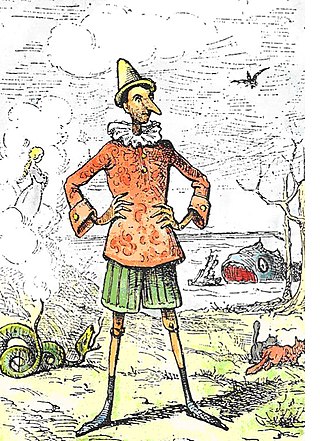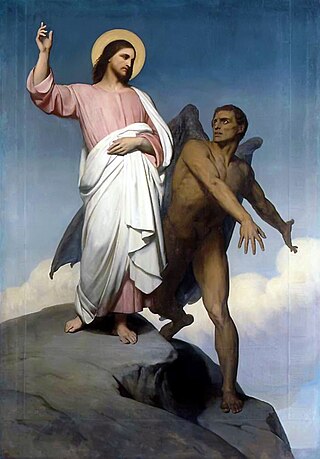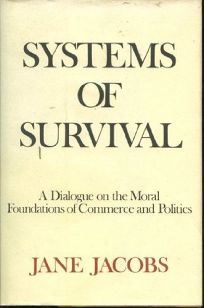
Evil, or being bad, in a general sense, is acting out morally incorrect behavior, or the condition of causing unnecessary pain and suffering, thus, containing a net negative on the world.
In metaphilosophy and ethics, metaethics is the study of the nature, scope, and meaning of moral judgment. It is one of the three branches of ethics generally studied by philosophers, the others being normative ethics and applied ethics.

Jane Jacobs was an American-Canadian journalist, author, theorist, and activist who influenced urban studies, sociology, and economics. Her book The Death and Life of Great American Cities (1961) argued that "urban renewal" and "slum clearance" did not respect the needs of city-dwellers.
Deception is an act or statement that misleads, hides the truth, or promotes a belief, concept, or idea that is not true. This occurs when a deceiver uses information against a person to make them believe an idea is true. Deception can be used with both verbal and nonverbal messages. The person creating the deception knows it to be false while the receiver of the message has a tendency to believe it. It is often done for personal gain or advantage. Deception can involve dissimulation, propaganda and sleight of hand as well as distraction, camouflage or concealment. There is also self-deception, as in bad faith. It can also be called, with varying subjective implications, beguilement, deceit, bluff, mystification, ruse, or subterfuge.
Ethical codes are adopted by organizations to assist members in understanding the difference between right and wrong and in applying that understanding to their decisions. An ethical code generally implies documents at three levels: codes of business ethics, codes of conduct for employees, and codes of professional practice.

Loyalty is a devotion to a country, philosophy, group, or person. Philosophers disagree on what can be an object of loyalty, as some argue that loyalty is strictly interpersonal and only another human being can be the object of loyalty. The definition of loyalty in law and political science is the fidelity of an individual to a nation, either one's nation of birth, or one's declared home nation by oath (naturalization).

A lie is an assertion that is believed to be false, typically used with the purpose of deceiving or misleading someone. The practice of communicating lies is called lying. A person who communicates a lie may be termed a liar. Lies can be interpreted as deliberately false statements or misleading statements, though not all statements that are literally false are considered lies – metaphors, hyperboles, and other figurative rhetoric are not intended to mislead, while lies are explicitly meant for literal interpretation by their audience. Lies may also serve a variety of instrumental, interpersonal, or psychological functions for the individuals who use them.
Ethics involves systematizing, defending, and recommending concepts of right and wrong behavior. A central aspect of ethics is "the good life", the life worth living or life that is simply satisfying, which is held by many philosophers to be more important than traditional moral conduct. The ethical features of an individual affects the community and peer group such a person is found in.
Ethical consumerism is a type of consumer activism based on the concept of dollar voting. People practice it by buying ethically made products that support small-scale manufacturers or local artisans and protect animals and the environment, while boycotting products that exploit children as workers, are tested on animals, or damage the environment.

Socratic dialogue is a genre of literary prose developed in Greece at the turn of the fourth century BC. The earliest ones are preserved in the works of Plato and Xenophon and all involve Socrates as the protagonist. These dialogues, and subsequent ones in the genre, present a discussion of moral and philosophical problems between two or more individuals illustrating the application of the Socratic method. The dialogues may be either dramatic or narrative. While Socrates is often the main participant, his presence in the dialogue is not essential to the genre.

Philippa Ruth Foot was an English philosopher and one of the founders of contemporary virtue ethics. Her work was inspired by Aristotelian ethics. Along with Judith Jarvis Thomson, she is credited with inventing the trolley problem. She was elected a member of the American Philosophical Society. She was a granddaughter of the U.S. President Grover Cleveland.

Bad faith is a sustained form of deception which consists of entertaining or pretending to entertain one set of feelings while acting as if influenced by another. It is associated with hypocrisy, breach of contract, affectation, and lip service. It may involve intentional deceit of others, or self-deception.
Media ethics is the subdivision dealing with the specific ethical principles and standards of media, including broadcast media, film, theatre, the arts, print media and the internet. The field covers many varied and highly controversial topics, ranging from war journalism to Benetton ad campaigns.
Secular ethics is a branch of moral philosophy in which ethics is based solely on human faculties such as logic, empathy, reason or moral intuition, and not derived from belief in supernatural revelation or guidance—a source of ethics in many religions. Secular ethics refers to any ethical system that does not draw on the supernatural, and includes humanism, secularism and freethinking. A classical example of literature on secular ethics is the Kural text, authored by the ancient Indian philosopher Valluvar.

James Webster Rachels was an American philosopher who specialized in ethics and animal rights.
In ethics and social sciences, value denotes the degree of importance of some thing or action, with the aim of determining which actions are best to do or what way is best to live, or to describe the significance of different actions. Value systems are prospective and prescriptive beliefs; they affect the ethical behavior of a person or are the basis of their intentional activities. Often primary values are strong and secondary values are suitable for changes. What makes an action valuable may in turn depend on the ethical values of the objects it increases, decreases, or alters. An object with "ethic value" may be termed an "ethic or philosophic good".
Ethics in the public sector is a broad topic that is usually considered a branch of political ethics. In the public sector, ethics addresses the fundamental premise of a public administrator's duty as a "steward" to the public. In other words, it is the moral justification and consideration for decisions and actions made during the completion of daily duties when working to provide the general services of government and nonprofit organizations. Ethics is defined as, among others, the entirety of rules of proper moral conduct corresponding to the ideology of a particular society or organization (Eduard). Public sector ethics is a broad topic because values and morals vary between cultures. Despite the differences in ethical values, there is a growing common ground of what is considered good conduct and correct conduct with ethics. Ethics are an accountability standard by which the public will scrutinize the work being conducted by the members of these organizations. The question of ethics emerges in the public sector on account of its subordinate character.
J. Budziszewski is an American philosopher and professor of government and philosophy at the University of Texas at Austin, where he has taught since 1981. He specializes in ethics, political philosophy and the interaction of these two fields with religion and theology.

In religion, ethics, philosophy, and psychology, "good and evil" is a very common dichotomy. In cultures with Manichaean and Abrahamic religious influence, evil is perceived as the dualistic antagonistic opposite of good, in which good should prevail and evil should be defeated. In cultures with Buddhist spiritual influence, both good and evil are perceived as part of an antagonistic duality that itself must be overcome through achieving Śūnyatā: emptiness in the sense of recognition of good and evil being two opposing principles but not a reality, emptying the duality of them, and achieving a oneness.

Scottish philosophy is a philosophical tradition created by philosophers belonging to Scottish universities. Although many philosophers such as Francis Hutcheson, David Hume, Thomas Reid, and Adam Smith are familiar to almost all philosophers it was not until the 19th century that the notion of 'Scottish philosophy' became recognized and highly regarded internationally. In the 20th century, however, this tradition declined as Scottish-educated philosophers left for England.










